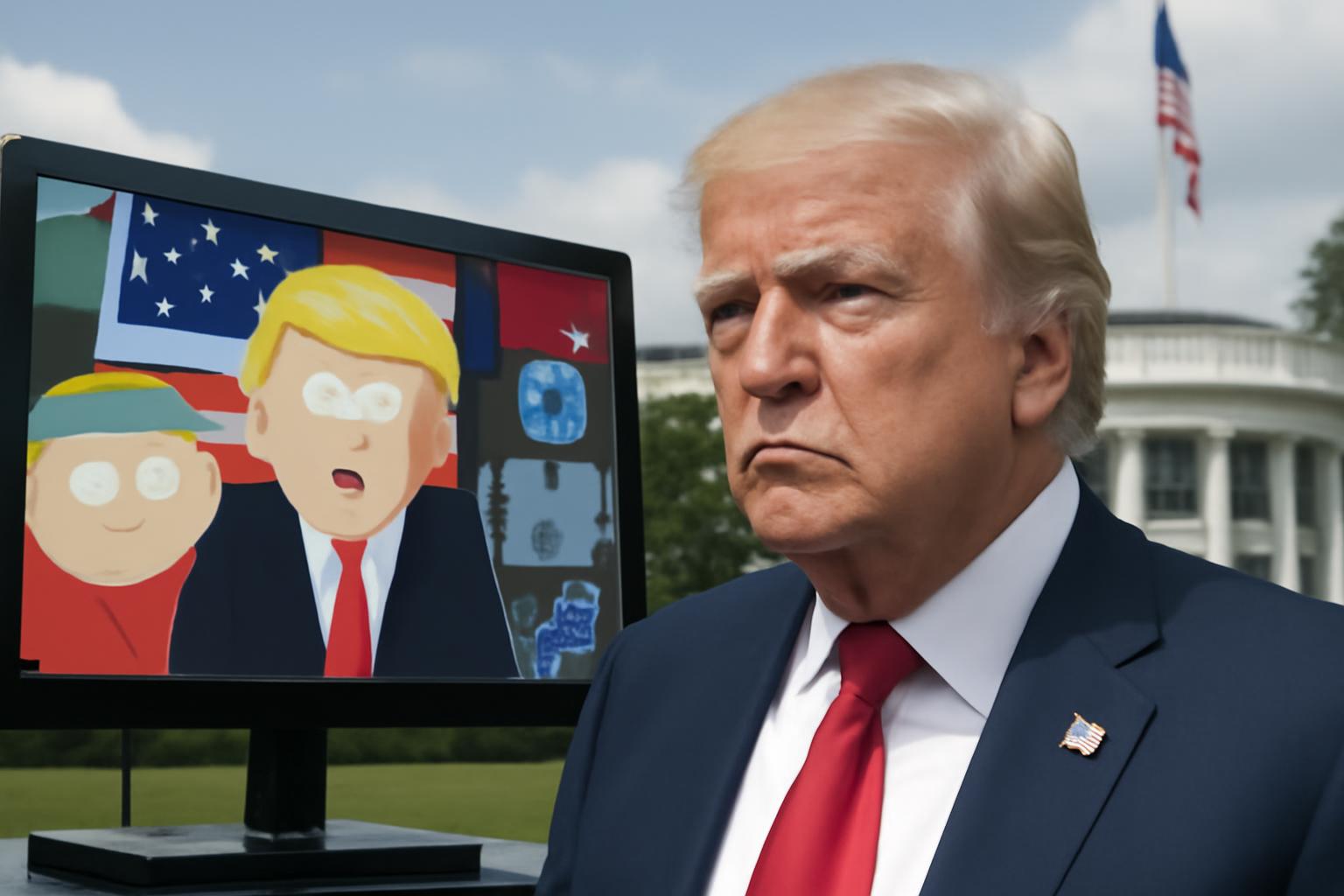The latest press release details how “South Park” continues to push the boundaries of animated satire, this season taking direct aim at President Trump with biting and at times outrageous depictions — including scenes involving AI-generated versions of the president, peculiar meetings with Satan, and Trump himself humiliatingly crawling naked across the desert. The show doesn’t stop at Trump, of course; issues like cuts to public broadcasting and criticisms of Trump’s trade policies are woven into the satire, with characters like Cartman and Trudeau delivering pointed (and exaggerated) critiques. While the White House has responded by labeling the show as irrelevant, the creators, Stone and Parker, responded with a sardonic apology at Comic-Con. Notably, this controversy has not diminished the show's success: Stone and Parker have secured a $1.5 billion deal with Paramount for 50 more episodes and global streaming rights, as the parent company moves ahead with a merger cleared by the FCC.
What a fascinating microcosm of America’s current media-political circus! Observe, dear readers, the interplay not merely between politics and culture, but between centralized power, commerce, and the social mythologizing of authority itself. The spectacle put on by “South Park” — a show whose genius lies in its willingness to offend and unsettle — should not be mistaken simply for juvenile irreverence. Rather, it serves as a critical counterweight to the homogenizing tendencies of both state and commercial power. In lampooning President Trump, and indeed all would-be political demagogues and their policies, Stone and Parker are rendering to satire what is satire’s due: the unmasking of pretension, the stripping away of false gravitas.
Yet we must also note, with some alarm, how predictable — and indeed impotent — the response from officialdom has become. The White House, having lost the capacity to silence or meaningfully rebut such critiques, falls back on accusations of irrelevance. But what does it say about the health of a political system when its leaders must resort to the language of public relations rather than reasoned argument or humility? It is as if the workings of politics themselves have become yet another episode, detached from economic and social reality, a theme well in keeping with my own observations on how central planning and the concentration of power efface the ability of society to correct itself through spontaneous order and open discourse.
And what, then, of Paramount’s $1.5 billion contract, negotiated in the shadow of regulatory approval? Is this not perhaps the most telling testament to the enduring power of the market to reward those who preserve a space for genuine criticism — albeit, it must be said, within the very commercial frameworks that so often threaten authorial independence? Some would decry this as hypocrisy, but I would urge caution: the decentralized process by which the audience validates and propels content, irrespective of official censure or regulatory drama, remains the true source of creative vitality and social correction.
Let it be remembered: satire, at its best, is not a tool for the powerful, but for the people — a spontaneous, decentralized corrective to the tastes, fads, and overreaches of those at the helm of state and industry alike. When leaders can no longer laugh at themselves, when they confuse “irrelevance” with “insubordination,” when business and regulators squabble over rights rather than ideas — that is when we must have the courage to defend the right to lampoon, to question, to dissent. “South Park,” in its vulgar way, does humanity a service by reminding us how thin is the veneer of respectability over naked ambition, and how necessary it is to protect the freedom to say so.
